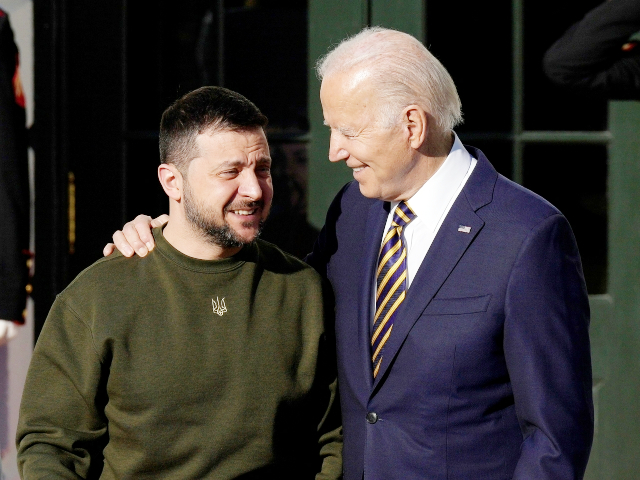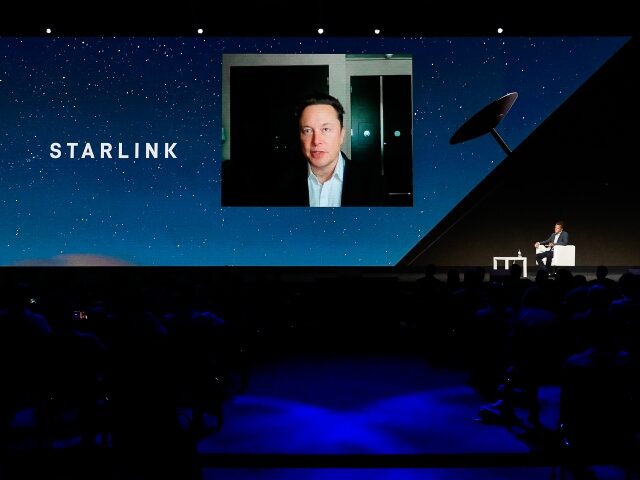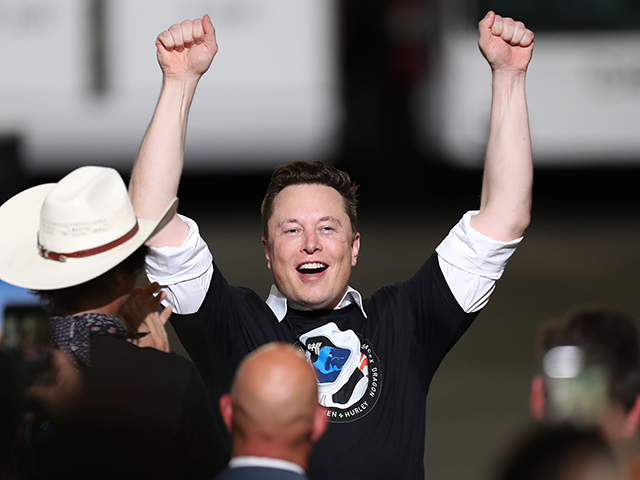Elon Musk’s decision to not activate Starlink’s satellite communications during a critical moment in the Ukraine conflict has sparked a heated debate on the role of private tech companies in international affairs. Musk took to his X/Twitter platform to defend the decision by claiming, “If I had agreed to their request, then SpaceX would be explicitly complicit in a major act of war and conflict escalation.”
CNN reports that Elon Musk, the CEO of SpaceX, was recently implicated in a geopolitical drama involving Ukraine and Russia. According to Walter Isaacson’s new biography of Musk, the tech mogul ordered his engineers to disable Starlink’s satellite communications to thwart a Ukrainian attack on the Russian naval fleet.

WASHINGTON, DC – DECEMBER 21: U.S. President Joe Biden (R) welcomes President of Ukraine Volodymyr Zelensky to the White House on December 21, 2022 in Washington, DC. (Drew Angerer/Getty)
The situation escalated when Ukrainian submarine drones, armed with explosives, lost connectivity as they approached Russian warships. “This fear was not baseless, as Musk had open discussions with high-ranking Russian officials not long before the attack,” Isaacson writes in his book. Ukrainian officials were left pleading for the reactivation of the satellites, but Musk’s concerns about a potential nuclear response from Russia held him back.
However, in a series of tweets, Musk clarified his stance. “The Starlink regions in question were not activated. SpaceX did not deactivate anything,” he tweeted. He further elaborated, “There was an emergency request from government authorities to activate Starlink all the way to Sevastopol. The obvious intent being to sink most of the Russian fleet at anchor. If I had agreed to their request, then SpaceX would be explicitly complicit in a major act of war and conflict escalation.”
Mario Nawfal, a commentator on geopolitics, initially tweeted, “Elon Musk covertly instructed his engineers to deactivate Starlink’s satellite communications network during a MAJOR Ukrainian offensive.” Musk then replied to Nawfal, one of the people most favored on his platform, to give his version of events.
This incident raises several pressing questions about the influence of private tech companies in matters of international security. Musk’s decision not to activate Starlink has been both lauded and criticized. While some argue that his actions may have prevented a nuclear conflict, others question the ethical implications of a private company having the power to influence international conflicts.
The episode also highlights the complexities tech companies face when their products become part of a larger geopolitical landscape. “Starlink was not meant to be involved in wars. It was so people can watch Netflix and chill and get online for school and do good peaceful things, not drone strikes,” Musk told Isaacson.
Breitbart news recently reported that Musk’s role in controlling Starlink communications in Ukraine is the subject of a report by Ronan Farrow, who says that Musk has “shadow rule” over the conflict.
Farrow writes:
The reason soon became apparent. “Even though Musk is not technically a diplomat or statesman, I felt it was important to treat him as such, given the influence he had on this issue,” Kahl told me. SpaceX, Musk’s space-exploration company, had for months been providing Internet access across Ukraine, allowing the country’s forces to plan attacks and to defend themselves. But, in recent days, the forces had found their connectivity severed as they entered territory contested by Russia. More alarmingly, SpaceX had recently given the Pentagon an ultimatum: if it didn’t assume the cost of providing service in Ukraine, which the company calculated at some four hundred million dollars annually, it would cut off access. “We started to get a little panicked,” the senior defense official, one of four who described the standoff to me, recalled. Musk “could turn it off at any given moment. And that would have real operational impact for the Ukrainians.”
Read more at CNN here.


COMMENTS
Please let us know if you're having issues with commenting.